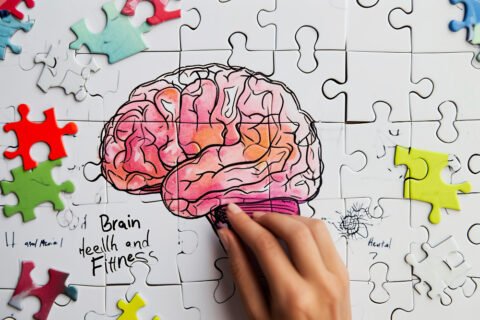Have you ever entered a room and forgotten why you’re there? Have you misplaced your keys for the hundredth time? Have you ever struggled to find the correct word during a conversation? These experiences might be frustrating, but they are also a typical aspect of growing older. However, they could potentially be early indicators of Mild Cognitive Impairment (MCI).
This page is here to help you navigate the world of MCI. We’ll look at the warning signals, how to manage them, and address any concerns you might have. Understanding MCI allows you to have control of your cognitive health and live a full life.
What are the Warning Signs of MCI?
Early detection is key when it comes to managing MCI. Here are some common warning signs to watch out for:
- Memory Loss: Forgetting recent events or information is a frequent symptom. You might miss appointments, forget conversations you just had, or struggle to learn new things.
- Difficulty Performing Familiar Tasks: Everyday activities like cooking, following a recipe, or managing finances become more challenging. You might need help with tasks you used to do independently.
- Language Problems: Finding the right words or following conversations can be difficult. You might struggle to express yourself clearly or repeat yourself unknowingly.
- Disorientation: Getting lost in familiar places or having trouble navigating new environments can be a sign of MCI.
- Poor Judgement: Making uncharacteristic decisions, like taking financial risks or neglecting safety precautions, could indicate underlying cognitive issues.
- Mood Changes: Increased anxiety, depression, or irritability can be associated with MCI.
- Apathy: Losing interest in hobbies and activities you once enjoyed is a potential symptom.
- Difficulty Planning or Solving Problems: Tasks that require concentration and planning, like organizing a trip or balancing a checkbook, become increasingly difficult.
- Trouble Understanding Visual and Spatial Relationships: You might have difficulty judging distances, navigating stairs, or understanding maps.
- Frequent Misplacing of Items: You might put things in unusual places and forget where you left them.
Can You Live a Normal Life with MCI?
The good news is that many people with MCI can continue living a relatively normal life with some adjustments and support. Here’s what can help:
- Mental Stimulation: Engaging in activities that challenge your mind, like puzzles, learning a new language, or playing brain training games, can help maintain cognitive function.
- Social Connections: Staying socially active is crucial for overall well-being and can help keep your mind sharp.

How Serious is Mild Cognitive Impairment?
While MCI doesn’t interfere significantly with daily life initially, it’s important to understand its potential impact:
- Increased Risk of Dementia: MCI increases the risk of developing dementia, a more severe condition that significantly affects daily activities.
- Impact on Daily Life: As MCI progresses, it can become more challenging to manage daily tasks independently.
Can You Still Work with Mild Cognitive Impairment?
Whether you can continue working with MCI depends on the severity of your symptoms and the demands of your job. Here are some considerations:
- Workplace Adjustments: Talk to your employer about potential adjustments like flexible hours, reduced workload, or assistive technology.
- Support Systems: Having a supportive work environment can make a big difference in managing MCI at work.
What is the Current Treatment for Mild Cognitive Impairment?
There’s currently no cure for MCI, but there are ways to manage symptoms and improve cognitive function:
- Symptom Management: Medications can help manage symptoms like anxiety or depression associated with MCI.
- Lifestyle Changes: Maintaining a healthy lifestyle with regular exercise, a balanced diet, and quality sleep can significantly benefit cognitive health.
- Cognitive Training: Participating in cognitive training programs can help improve memory, focus, and problem-solving skills.
- Addressing Cardiovascular Risk Factors: Managing conditions like high blood pressure and diabetes can reduce the risk of MCI progressing to dementia.
What is the Next Stage After Mild Cognitive Impairment?
While MCI doesn’t always progress to dementia, it increases the risk. Here’s what to keep in mind:
- Monitoring Symptoms: Regularly monitoring your cognitive function and any changes in symptoms is crucial.
- Seeking Medical Advice: If you notice a worsening of symptoms, it’s important to consult your doctor for further evaluation.
How Fast Can MCI Progress?
The course of MCI varies widely. Some people have consistent symptoms for years, while others advance fast to dementia.
Can Exercise Reverse MCI?
While exercise is not a cure for MCI, it does provide considerable advantages to brain function. Regular physical activity can improve cognitive function and memory, as well as stabilise MCI symptoms in some situations.
How to Stop Mild Cognitive Impairment (MCI)
There isn’t a guaranteed way to completely stop MCI, but there are steps you can take to manage it and potentially slow its progression:
- Healthy Lifestyle: This is key. Prioritize regular physical exercise, a balanced diet rich in brain-healthy nutrients like omega-3 fatty acids and antioxidants, and quality sleep.
- Mental Stimulation: Keep your mind active! Challenge yourself with mentally stimulating activities like puzzles, learning a new skill, reading, or engaging in discussions.
- Manage Cardiovascular Risk Factors: Conditions like high blood pressure, high cholesterol, and diabetes can contribute to MCI. Work with your doctor to manage these conditions effectively.
Can MCI Correct Itself?
In some cases, MCI caused by reversible factors can actually improve or even stabilize with proper treatment! This is good news, especially if you’re experiencing symptoms that concern you. Here are some examples of reversible factors:
- Medication Side Effects: Certain medications can cause cognitive side effects as a temporary issue. Talking to your doctor about alternative medications could potentially improve your cognitive function.
- Sleep Disorders: Chronic sleep deprivation disrupts brain function and memory consolidation. Addressing sleep disorders like sleep apnea with treatment can significantly improve cognitive function and potentially reverse MCI symptoms.
- Depression: Depression can manifest as cognitive changes, including memory problems and difficulty concentrating. Treating depression can significantly improve these symptoms and potentially reverse MCI caused by it.
If you feel a reversible factor is contributing to your MCI, you should see your doctor for an accurate diagnosis and treatment plan. Early intervention is critical to increasing the likelihood of improvement.
Can Sleep Deprivation Cause MCI?
Yes, persistent sleep deprivation can impair cognitive performance and may contribute to MCI. During sleep, your brain consolidates memories, analyses information, and eliminates poisons. Regularly failing to get enough quality sleep disturbs these critical processes, resulting in issues with memory, focus, and concentration.
Here’s how sleep deprivation can affect your brain:
- Disrupted Memory Consolidation: During sleep, your brain strengthens memories and transfers them from short-term to long-term storage. Sleep deprivation disrupts this process, making it harder to form new memories and recall existing ones.
- Reduced Cognitive Performance: Lack of sleep hinders your brain’s ability to focus, concentrate, and process information efficiently. This can lead to problems with decision-making, problem-solving, and overall cognitive function.
- Increased Inflammation: Chronic sleep deprivation can trigger low-grade inflammation in the brain, which has been linked to cognitive decline and neurodegenerative diseases.
To promote brain function and maybe prevent MCI, strive for 7-8 hours of quality sleep per night. If you’re having difficulties sleeping, see your doctor about identifying and treating any underlying sleep disorders.
What Foods are Good for Cognitive Function?
You can nourish your brain with a brain-boosting diet! Here are some key categories of foods to include:
- Leafy Greens & Vegetables: Rich in antioxidants and vitamins that protect brain cells and promote cognitive health. Aim for spinach, kale, broccoli, and other dark, leafy greens.
- Berries: Packed with antioxidants that fight inflammation and protect brain cells from damage. Blueberries, strawberries, and raspberries are excellent choices.
- Fatty Fish: Rich in omega-3 fatty acids, which are essential for brain function and memory. Include salmon, tuna, sardines, and mackerel in your diet.
- Nuts & Seeds: A good source of healthy fats, vitamin E, and other brain-protective nutrients. Enjoy almonds, walnuts, peanuts, flaxseeds, and chia seeds.
- Whole Grains: Provide sustained energy for your brain and are a good source of B vitamins, which are important for cognitive function. Choose whole wheat bread, brown rice, quinoa, and oats.
In addition to these categories, including foods high in antioxidants and omega-3 fatty acids, such as olive oil, avocados, and dark chocolate, can improve your cognitive health. Remember that a balanced and nutritious diet is essential for general health and cognitive function.
Is MCI Normal Aging?
While MCI is more common in older adults, it’s important to understand that it’s not a normal part of aging. Here’s how to distinguish between occasional forgetfulness and MCI:
- Frequency and Severity: Occasional forgetfulness, like forgetting where you put your keys or misplacing your phone momentarily, is a normal experience. However, with MCI, forgetfulness becomes more frequent and severe. You might forget important appointments, conversations you just had, or struggle to learn new things.
- Impact on Daily Life: Occasional forgetfulness doesn’t significantly disrupt your daily activities. With MCI, cognitive decline starts to interfere with your ability to manage daily tasks independently. You might need help with finances, cooking, or following directions.
- Progression: Normal age-related forgetfulness tends to remain relatively stable. In MCI, cognitive decline tends to worsen over time, although the rate of progression can vary.
If you are concerned about your memory or suspect you have MCI, see your doctor for a thorough evaluation. Early identification and intervention are critical in controlling MCI and preserving cognitive function.

How Do I Stop MCI?
Here are some tips to prevent or slow the progression of MCI:
- Maintain a Healthy Lifestyle: As mentioned earlier, exercise, a balanced diet, and quality sleep are crucial.
- Engage in Mental Activities: Keep your brain active through learning, puzzles, or mentally stimulating hobbies.
- Manage Health Conditions: Addressing underlying health issues like diabetes or high blood pressure can significantly benefit cognitive health.
What is the Home Test for MCI?
There isn’t a definitive home test for MCI. However, some cognitive assessments can indicate potential problems. These are not diagnostic tools, but they can prompt you to seek professional evaluation.
Do People with MCI Get Better?
Yes, people with MCI can improve, especially if the cause is reversible. Early diagnosis and intervention are crucial for maximising the potential for improvement.
At What Age Does Cognitive Decline Start?
Cognitive decline can begin subtly as early as midlife, but it’s more commonly noticeable after 65.
How to Prevent Memory Loss?
There’s no guaranteed way to prevent memory loss entirely, but you can significantly reduce your risk by:
- Staying Mentally Active: Challenge your brain regularly with stimulating activities.
- Maintaining a Healthy Lifestyle: Exercise, diet, and sleep are essential for brain health.
- Addressing Health Issues: Manage any underlying health conditions that could contribute to cognitive decline.
Remember that early detection and action are critical when it comes to controlling MCI. If you are concerned about yourself or a loved one, see a doctor for an accurate evaluation and help. You may control MCI while living a full life by taking a proactive approach and adopting a brain-healthy lifestyle.
Frequently Asked Questions
A: There’s no single test for MCI. However, if you experience several of the above signs and they’re causing you or your loved ones concern, consult a doctor for evaluation. They may conduct cognitive assessments and memory tests to get a clearer picture.
A: MCI can occur at any age, but it’s more common in older adults, sometimes starting as early as midlife. However, occasional forgetfulness doesn’t necessarily indicate MCI.
A: In some cases, yes! If caused by reversible factors like medication side effects, sleep disorders, or even depression, MCI can improve or stabilise with proper treatment.
A: The exact cause of MCI is unknown, but several factors can contribute:
Age-related changes in the brain.
Underlying health conditions like high blood pressure, diabetes, or sleep apnea.
Head injuries.
Certain medications.
A: Occasional forgetfulness is a normal part of ageing. However, MCI involves a more persistent decline in cognitive function that disrupts daily life.
A: Chronic stress can negatively impact memory and concentration. While it may not directly cause MCI, it can worsen symptoms.
A: MCI progression varies greatly. Some people experience stable symptoms for years, while others progress more quickly to dementia.
A: While there’s no cure for MCI, there are ways to manage symptoms and improve cognitive function:
Maintaining a healthy lifestyle with exercise, diet, and sleep.
Engaging in mental stimulation activities.
Managing underlying health conditions.
Cognitive training programs (in some cases).
A: No, there isn’t a definitive home test for MCI. However, some online cognitive assessments can indicate potential problems. These are not diagnostic tools, but they can prompt you to seek professional evaluation from a doctor.




